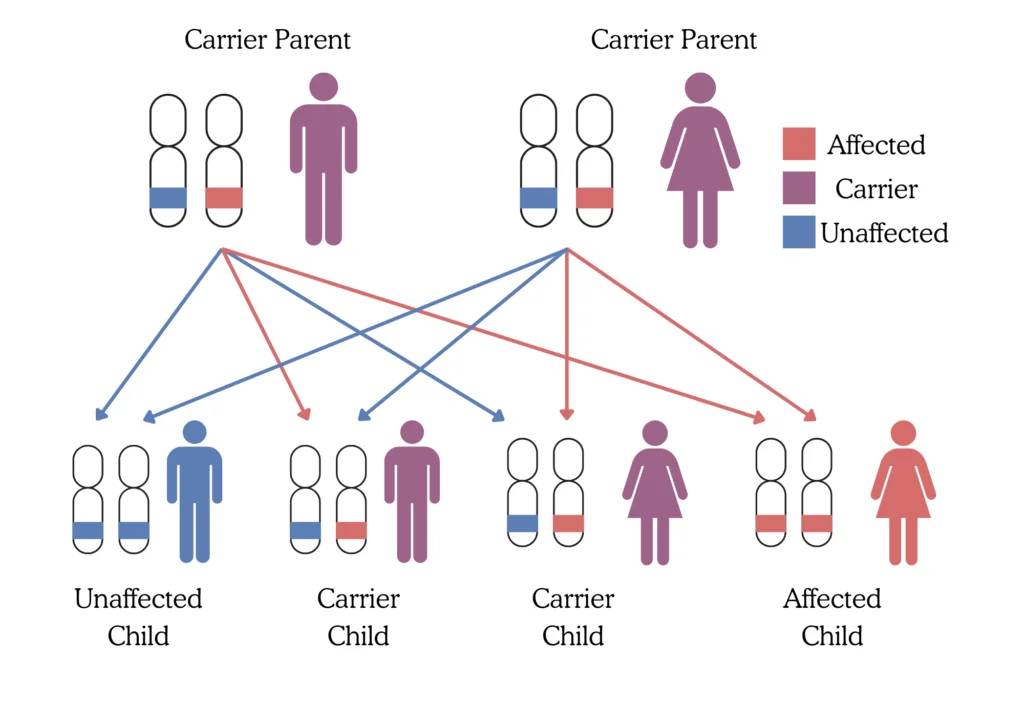Carrier Screening for Couples: A Guide to Informed Parenthood
Introduction:
Parenthood is a transformative journey, and understanding potential genetic risks is an essential step for couples planning to start a family. Carrier screening, a genetic test designed to identify whether one or both partners carry changes in genes (mutations) for certain inherited conditions, can provide invaluable insights into the likelihood of passing these conditions to their children. This proactive approach helps couples to make informed reproductive choices and plan for a healthy future.
What is Carrier Screening?
Carrier screening involves analyzing an individual’s DNA to detect mutations associated with specific genetic disorders. These mutations may not affect the carrier’s health but can lead to serious health issues in offspring if inherited from both parents. Carrier screening is particularly beneficial for:
- Couples planning a pregnancy.
- Couples with a history of genetic disorders in their families.
- Those from populations with higher carrier rates for certain conditions.
- Couples married within the same community or extended family (consanguineous).

How is Carrier Screening Done?
- Sample Collection: A simple blood draw collects a DNA sample.
- Laboratory Analysis: The sample is analyzed for mutations associated with a wide range of genetic conditions.
- Result Interpretation: Results are reviewed by a genetic counselor, who will then explain their implications and help determine the next steps.
Who Should Consider Carrier Screening?
While carrier screening is an option for all couples, it is strongly recommended for:
- Couples with a family history of genetic disorders such as cystic fibrosis, Spinal Muscular Atrophy, or thalassemia.
- Couples from high-risk ethnic backgrounds, like South Asians for conditions such as beta-thalassemia or SMA (carrier rate of 1 in 38 in India).
- Couples undergoing fertility treatments, as part of pre-implantation genetic testing.
- Consanguineous couples, due to an increased likelihood of shared genetic mutations.
Common Conditions Detected by Carrier Screening:
Carrier screening can detect mutations for numerous genetic disorders, including:
- Cystic Fibrosis: Affects the respiratory and digestive systems.
- Spinal Muscular Atrophy (SMA): A condition leading to muscle weakness and atrophy.
- Thalassemia: A blood disorder causing anemia.
- Tay-Sachs Disease: A condition leading to severe neurological impairment.
The Role of Genetic Counseling in Carrier Screening
Genetic counseling is a cornerstone of the carrier screening process. It ensures that couples understand the implications of their results and make decisions best suited to their circumstances. Key aspects include:
- Education: Explaining the genetic inheritance patterns and risks.
- Support: Addressing emotional concerns and helping couples process the results.
- Planning: Discussing reproductive options.
For more on genetic counseling, see our blog post Understanding the Genetic Counseling Process: A Comprehensive Guide.
What Happens if Both Partners Are Carriers?
If both partners are found to be carriers of the same genetic condition, there is a 25% chance with each pregnancy that their child can inherit the condition. In such cases, genetic counselors guide couples through options, including:
- In-vitro fertilization (IVF) with preimplantation genetic testing to select unaffected embryos.
- Prenatal diagnostic tests, such as chorionic villus sampling (CVS) or amniocentesis, to confirm the baby’s genetic status during pregnancy.
- Exploring alternative reproductive options like donor gametes or adoption, tailored to the couple’s values and preferences.
Benefits of Carrier Screening
- Informed Decision-Making: Couples can make well-informed reproductive choices.
- Early Detection and Planning: Understanding genetic risks allows better preparation and management.
- Peace of Mind: Knowing the risks (or lack thereof) provides emotional reassurance.
- Improved Health Outcomes: Enables proactive healthcare decisions that may reduce the impact of genetic disorders.
Challenges and Ethical Considerations:
Carrier screening is not without its challenges. Incomplete results and emotional stress are potential hurdles. Ethical dilemmas, such as deciding on the next steps after a positive result, must be navigated with sensitivity and support from genetic counselors. Moreover, respecting a couple’s cultural and personal values is integral to the process. Rapid advances in screening technology have also raised questions about privacy and the potential for genetic discrimination.
Conclusion:
Carrier screening is a vital tool for couples planning a family, offering a clearer understanding of genetic risks and making informed decisions. At Mirror Gene, we are dedicated to providing personalized genetic counseling services tailored to your needs. Book a consultation with us today for more insights and guidance on carrier screening. Together, we can pave the way for a healthier tomorrow.
